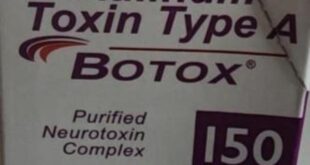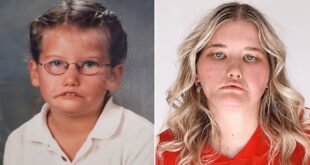
Record heat runs through Northeast
FOX Weather’s Katie Byrne reports on the record hot weather in the Northeast and how some schools are dismissing kids early due to lack of AC on ‘Your World.’
Up to 75% of Americans suffer from chronic dehydration, according to multiple studies — and this becomes even more dangerous as summer temperatures heat up.
To help you stay hydrated in the heat, Dr. Sanjai M. Thankachen, a psychiatrist and physician in Fountain Valley, California, shared some tips and warning signs in an interview with Fox News Digital.
In the summer, the heat causes the body to sweat more in order to regulate temperature. This leads to a loss of vital fluids, which can create dehydration, he said.
STAYING HYDRATED MAY LOWER RISK OF HEART FAILURE, STUDY SAYS
“Maintaining hydration when it’s hot helps to regulate body temperature, supports organ function and improves overall well-being,” Thankachen said.
What to watch for: Signs of dehydration
Some early signs of dehydration include thirst, fatigue, dizziness, lightheadedness, dry mouth, dry lips and dark urine, the doctor said.
If dehydration isn’t addressed, it can lead to heat exhaustion and heatstroke.
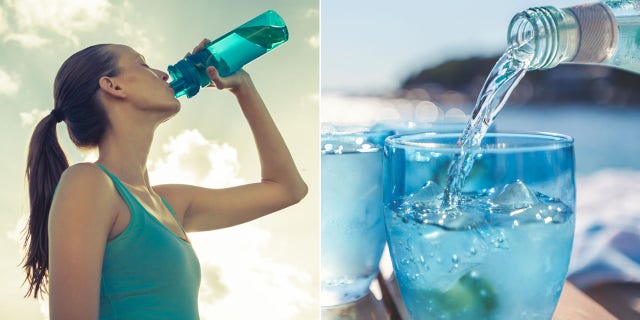
Up to 75% of Americans suffer from chronic dehydration, per multiple studies — which becomes even more dangerous amid summer temperatures. (iStock)
Heat exhaustion happens first — this is when excess sweating causes the body to lose large amounts of water and salt, per Healthline.
Signs of heat exhaustion include weakness, nausea, dizziness, lightheadedness, a weak but faster pulse, and pale, cold or clammy skin, per Healthline.
TINA TURNER SUFFERED FROM KIDNEY DISEASE BEFORE HER DEATH: ‘I HAVE PUT MYSELF IN GREAT DANGER’
This can progress to heatstroke, which Healthline defines as “a serious medical emergency that occurs when your body is unable to control its internal temperature.”
With heatstroke, the body can reach temperatures above 104°F. Other symptoms can include disorientation, loss of consciousness and hot, red, dry or moist skin.
Other dangers of dehydration
When left unchecked, severe dehydration can lead to kidney problems.
“Inadequate hydration can increase the risk of kidney stones or urinary tract infections,” Thankachen warned.
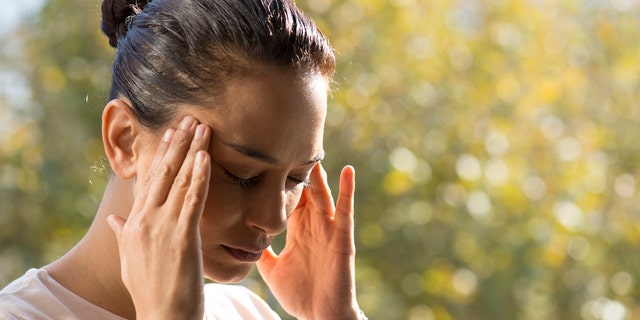
Some early signs of dehydration include thirst, fatigue, dizziness, lightheadedness, dry mouth, dry lips and dark urine. (iStock)
Dehydration can also lead to low blood pressure and imbalances with electrolytes, which can lead to lightheadedness, fainting, irregular heartbeat and other complications, the doctor said.
Why you should avoid alcohol in the heat
As tempting as it might be to enjoy a margarita at the pool, alcohol has a dehydrating effect on the body, making it potentially dangerous on hot summer days.
HEALTHY AGING AND DRINKING WATER: FASCINATING FINDINGS FROM A NEW STUDY
Alcohol is a diuretic, meaning it promotes urination.
This causes the body to lose important fluids and electrolytes, Thankachen explained.
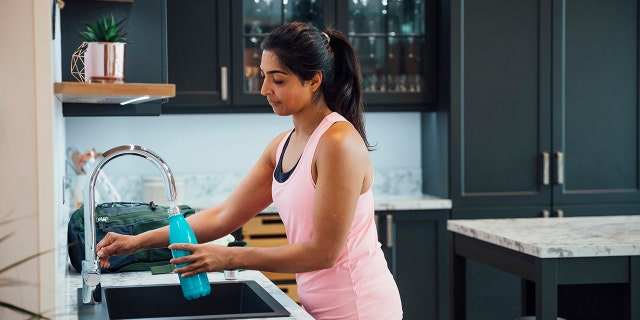
Water is the best and most effective way to hydrate, followed by drinks that are rich in electrolytes and don’t contain added sugars, experts say. (iStock)
“When you consume alcohol, your body produces more urine than normal, which leads to dehydration,” he said.
“Alcohol can also impair the release of vasopressin, an antidiuretic hormone, which helps regulate water balance in the body.”
Dehydration from alcohol specifically includes such symptoms as thirst, fatigue, irritability, confusion and headache, the doctor said.
Water is always best
Water remains the best and most effective way to hydrate, according to Thankachen.
Other great options include drinks that are rich in electrolytes and don’t contain added sugars, like fruit-infused water, Pedialyte and herbal teas.
CLICK HERE TO SIGN UP FOR OUR HEALTH NEWSLETTER
We’ve all heard the age-old guidance to drink eight cups of water a day, but the amount each person needs will depend on many factors, such as age, weight, activity level, climate and existing health conditions, per Cleveland Clinic.
CLICK HERE TO GET THE FOX NEWS APP
Monitoring the color of your urine is one way to check hydration levels. Darker urine is a sign of dehydration, while clear or light-colored urine indicates that you’re drinking the right amount.
When in doubt, it’s best to talk to your doctor to determine how much you should drink to stay hydrated.
To read more pieces in Fox News Digital’s “Be Well” series, click here.

 Latest Breaking News Online News Portal
Latest Breaking News Online News Portal

